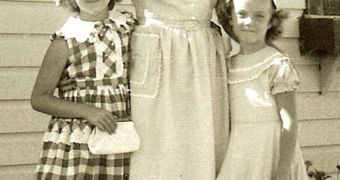A new report, covering nearly 20 years, shows how mothers in the United States went through changes as their lifestyle changed. The document, which was released on May 6 by the respected Pew Research Center, shows that, between 1990 and 2008, women who became mothers tended to be more educated and older than ever before. For this particular investigation, the Pew analysts relied on data obtained from the National Center for Health Statistics, as well as from the US Census Bureau. The main point of interest was precisely who fits into the “American mom” category, LiveScience reports.
An additional study, published alongside the larger report, also shows some of the reasons why couples, or men and women in general, choose to become parents. The most oft-cited reason is the “joy of having children,” followed closely by the “there wasn’t a reason; it just happened” explanation. This may partially account for why the number of teen births in the country has dropped so much over the past two decades, whereas the number of children born by women beyond the age of 35 has increased. The Pew report also found that an increasing proportion of all mothers are not married, or have a stable life partner.
It was also discovered that a large percentage of single moms tend to be younger in age. Over the past 18 years, White mothers dropped in number, from 65 percent of all births to accounting for only 53 percent in 2008. At the same time, the number of births from Hispanic mothers went from 14 to 24 percent. Single women now make up about 41 percent of all mothers in the United States, a huge surge from the 28 percent proportion they had back in 1990. The number of educated women increased as well, from 41 percent to 54 percent. All these women had at least some college-level education.
The Pew team was also able to establish that the total number of new births did not modify considerably during the time of the study. About 4.2 million babies were born in 1990, whereas, in 2008, American women gave birth to some 4.3 million children. Though the data are not yet in, it may be that the numbers of children born in 2009 and 2010 are lower than the average, due to the ongoing economic recession.
“[With] the advent of assisted reproductive technologies, women feel that they have the option to be pregnant even with declining fertility, whereas prior to that, there would have been more of an incentive for them to have their family younger when they felt that they would not have that option,” explains March of Dimes deputy medical director D. Diane Ashton. She was not a part of the new investigation.

 14 DAY TRIAL //
14 DAY TRIAL //